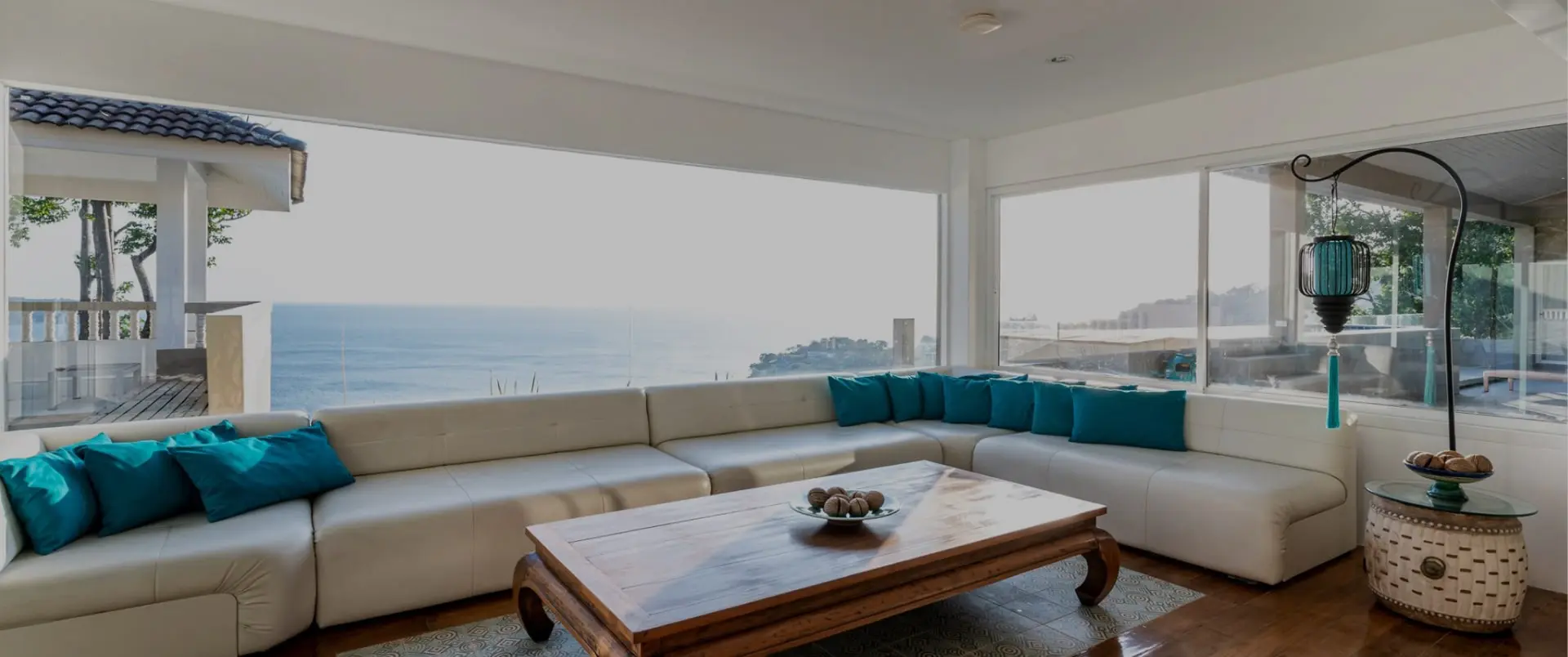
Welcome to The Diamond Rehab Thailand’s overeating retreat. Through a combination of therapy, mindfulness practice and holistic activities, our team of highly experienced eating disorder treatment specialists will help you develop the skills necessary to live a healthy, balanced and fulfilling life.
Contact our overeating disorder rehab to learn more about the admissions process, or read on to discover why The Diamond Rehab Thailand is regarded as one of Asia’s leading compulsive overeating treatment centers.

Compulsive overeating affects everyone differently. That’s why we take a highly personalised approach to treatment for compulsive overeating that aims to address your specific needs as an individual. We’ll take the time to understand your requirements and recovery goals and guide you through a treatment plan tailored to your strengths.
We’re firm believers that a strong foundation of empathy is crucial for successful long-term recovery. Rest assured, you’ll receive the highest level of care, respect, and support throughout your time at our compulsive overeating disorder treatment center.
Judgement has absolutely no place in the healing process. Instead, our rehab programs for overeating focus on providing an environment where you’ll feel safe to explore your relationship with food. Through therapy, nutrition education, and mindfulness practice, you’ll learn to make healthier and more informed decisions about food in the years ahead.

Committing to compulsive overeating rehab takes courage. To make the experience as enjoyable as possible, we provide a luxury overeating disorder treatment center, complete with all the high-quality facilities and thoughtful extras you would expect to find in a high-caliber resort.
Located in Phuket, Thailand, our overeating retreat offers a comfortable environment where you can fully focus on the recovery process without the distractions of day-to-day life. We encourage you to explore the diverse range of activities that we have to offer at our rehab for compulsive overeating, whether it’s clearing the mind with guided meditation, finding strength and balance in yoga, or enjoying a relaxing massage.
We understand that cost can be a key barrier to treatment, which is exactly why we strive to keep our prices fair and competitive. The low cost of living in Thailand allows us to deliver world-class treatment programs, including luxury facilities and industry-leading clinical expertise, at extremely competitive prices compared to similarly equipped overeating rehab centers in Western nations.
Psychotherapy is an integral part of our overeating addiction treatment programs. During your time at our compulsive overeating treatment center, you’ll have the opportunity to participate in ongoing cognitive behavioral therapy, led by some of the brightest minds in the field of eating disorders.
In this safe, judgement-free space, you’ll work with our expert therapists to identify negative emotions and behaviour and learn how to restructure the unhelpful thought processes that contribute to food addiction.
Along the way, you’ll develop a comprehensive and fully customised relapse prevention plan to help you manage the triggers of daily life that you’ll inevitably encounter after graduating from our rehab center for overeating.
The Diamond Rehab Thailand is an inpatient rehab center for overeating, which means you’ll live at our luxury facility for the duration of your treatment. While the prospect of entering residential treatment for overeating may be daunting, the truth is that immersing yourself in a structured healing environment offers the best chances of successful long-term recovery.
Your external environment can have a direct impact on the recovery process. To eliminate outside influences, overeating treatment centers are carefully controlled and supervised, with the aim of creating a peaceful facility that is completely free of the triggers, stressors, and demands of daily life. In this peaceful setting, you’ll have the opportunity to evaluate your life and perhaps gain a new perspective that will pave the way for positive change.
Inpatient recovery centers also offer a number of benefits in terms of support. At our overeating disorder rehab, you’ll have 24/7 assistance from our compassionate support team, ensuring you receive the highest level of care and attention during these early stages of recovery.
In some ways, recovering from a compulsive eating disorder is more challenging than overcoming a substance abuse problem. Whereas complete sobriety is the primary objective for an addict, total abstinence isn’t the goal for those struggling with compulsive eating for the simple reason that – unlike recreational drugs – food is obviously a necessary part of life.
The challenge lies in learning how to appreciate food as fuel – not as a coping mechanism that can be abused in times of stress or difficulty.
As one of the leading compulsive overeating disorder treatment centers in Asia, our recovery programs emphasise the importance of building sustainable positive habits. During overeating rehab treatment, our nutrition experts will provide you with the tools and insight you need to make healthier eating decisions, develop practical strategies for controlling weight, and ultimately nurture a healthier relationship with food.

Whether it’s the holiday season, a social occasion, or a celebration, it’s fair to say that almost everyone overindulges from time to time.
Compulsive eating is different. Compulsive overeating sometimes referred to as binge eating disorder, is a condition characterized by uncontrolled episodes of overeating. The urge to compulsively overeat typically starts to develop in adolescence or young adulthood but can affect people of any age. Researchers believe that a range of biological, psychological, and social factors may contribute to the development of compulsive overeating disorder, although the exact cause is still unknown.
Compulsive overeating can be expressed in many different ways, including:
– Eating until you feel uncomfortably full
– Eating large amounts of food even if you don’t feel hungry
– Eating in secrecy
– Feeling embarrassed, guilty, or ashamed of your eating habits
Compulsive overeating can have far-reaching effects on a person’s physical and mental health. The condition often causes significant weight gain, which can lead to obesity and a range of weight-related health issues such as high blood pressure, type 2 diabetes, heart disease, stroke, and more.
With comprehensive treatment programs, luxury resort-style facilities, and a team of highly qualified professionals fully committed to your recovery, The Diamond Rehab Thailand is an excellent option for anyone seeking an effective compulsive overeating disorder treatment center in Thailand.
For more information, contact our overeating retreat today and speak to one of our overeating treatment experts.
Compulsive overeating disorder is typically treated with a combination of modalities, including:
A compulsive overeater is someone who eats excessive amounts of food past the point of satiety. For people with a compulsive overeating disorder, food may be used as an escape or a coping mechanism. Many compulsive overeaters feel a sense of guilt or shame after eating and often try to conceal their behavior from others.
Compulsive overeating disorder can affect your body in a variety of ways. Gastrointestinal issues – including bloating, nausea, acid reflux, abdominal pain, and diarrhea – are common, while consuming large amounts of sugar, fats, and dairy can have an adverse impact on skin health. Overeating can also lead to obesity, increasing the risk of heart disease, type 2 diabetes, high blood pressure, and high cholesterol.
Research suggests a complicated relationship between anxiety and overeating. A number of studies suggest that some individuals compulsively overeat as a way to temporarily relieve feelings of anxiety, which can develop into an automatic response pattern. Meanwhile, other studies have found that people with compulsive overeating disorder are more likely to experience anxiety symptoms compared with the general population.
Yes. Compulsive overeating is a form of behavioural addiction, which is a compulsion to engage in a set of rewarding behaviors despite the negative effect it might have on a person’s life. People with compulsive overeating disorder receive intense pleasure from eating and often have little or no control over their eating habits.
Overeating can have a range of long-term effects. Physically, overeating may increase the risk of obesity, disrupt your body’s natural hunger regulation and impact your digestive system. Looking beyond the physical aspect, overeating can upset your circadian rhythm and impact your quality of sleep, impair focus and memory, affect personal body image and contribute to certain mental health conditions like depression and anxiety.
Everything you want know
If you are interested to come to The Diamond, please fill in the admission form and we will contact you ASAP. You can also call us on +66 (0) 98 721 85 87
At The Diamond Rehab Thailand we are experts in getting your loved ones into treatment. To start you can show your loved one our website and they will probably soon take an interest in our treatment center. If need be, we also can arrange an intervention at your home done by a professional interventionist arranged by The Diamond Rehab Thailand.
The process may differ, as programs are customised based on what the patient needs as well as the severity of the addiction or mental illness, but the goal of rehabilitation is always to ensure the individual’s well-being. Most treatment programs include: evaluation, detox or the clearing of alcohol and other drugs out of your system, psychological treatments, education sessions, and supportive services. When you transition into outpatient therapy, you may still have one-on-one or group therapy sessions and to some patients, these may last for the rest of their lives.
Yes, our driver will be waiting for you at the airport and bring you to our centre.

Schedule free assessment
Concerned about yourself or your loved one?
Schedule a free assessment with our experts.